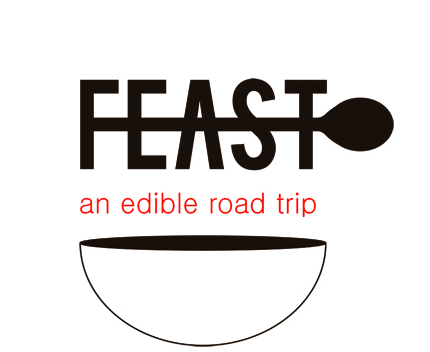Globe Artichokes Grow in Newfoundland!
Newfoundland is known for many things, but agriculture isn’t necessarily one of them. High winds, craggy cliffs, and fishing yes, but rich fertile soil? Not what comes to mind when one thinks of the island. In reality, however, people have been growing food for decades, and in the 1950’s, Newfoundland was almost entirely self sufficient in food production and consumption.
We had the great pleasure of meeting two farming organizations while we were in St. John’s. We drove up the hill into the neighbouring community of Portugal Cove, just 10-15 minutes outside of St. John’s.
First, we discovered Seed to Spoon, an organic farming cooperative partially run by Sarah Crocker; they’ve been working on privately owned land for the last five years. The land is owned by Jon and Judy Lien, a couple who’ve experimented in various agriculture and farming ventures for 30+ years. They were huge animal lovers, and even housed an abandoned baby moose with their goats. The moose was later found (and photographed) nursing alongside of the significantly smaller baby goats, an image that’s both highly amusing and quite remarkable.
As they aged, and Jon fell into ill health, they wanted to see their agricultural legacy continue, so they slowly passed farm work to Seed to Spoon. The co-op grows a huge variety of vegetables and sells it through 45 CSA shares, at the market in St. John’s, and to restaurants such as Chinched Bistro (we can’t wait to tell you more about these guys!). It’s because of Jon and Judy’s conscientious dedication to sustainable agriculture that Seed to Spoon now have the pleasure of working with some of Newfoundland’s most incredible soil. Though it’s sloped and rocky at parts, they still manage to yield a good crop.
The land has a history of diverse agricultural uses, and Seed to Spoon and Judy hope to keep it that way by putting it into an agricultural land trust. Since there is no precedent in the province, achieving this goal is proving to be a bit tricky. The idea is that the land owner can sell the land to a non-profit or charity, and that charity will keep the land ‘in trust’ according to the owner’s wishes (ie. land use regulations, growth practices, etc).
It’s an important and strategic move, as the land reserved for agriculture in Canada decreases every year. Establishing this land in an agricultural land trust would be a progressive move for Newfoundland, and a step in the right direction for preserving local food security.
After leaving Seed to Spoon, we twisted around a few more bends and ended up at The Organic Farm, another farming operation in the hills of Portugal Cove. They are one of the most biologically diverse agricultural operations on the island, supplying 15 restaurants with fresh sprouts and greens as well as a number of families with CSA shares.
We were greeted by Mike Rabinowitz:
“You guys are food writers? You need an education. These are tromboncino squash, and they’re the most delicious, versatile squashes." An education we were glad to receive! The new-to-us variety apparently cooks like zucchini, but holds its shape better.
He used to grow them on the ground without much luck, but now they grow suspended, and we stood under the massive 2kg squashes and pumpkins, hoping they wouldn’t fall and knock us out.
We meandered through the many rows of kale, cabbage, and greens, and appreciated again the challenge of growing food on sloped, rocky patches of land.
Mike also proudly showed us the success he’s had growing globe artichokes, an unexpected vegetable to thrive in the windy climate of Newfoundland.
Kudos to the hard-working farmers on The Rock!
-DV
